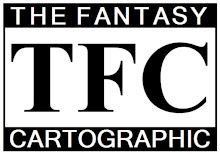As someone new to the OSR but who is definitely interested in furthering it, I find myself thinking about where it has been and where it is headed. To clarify thoughts in my head, I’ve written a brief synopsis of its history. Be aware that in no way do I believe this to be definitive or detailed, but it is in rough terms what I have come to understand about the evolution of ‘old school’ gaming to this point. If there is anything patently incorrect in this synopsis, I hope that those of you who are more aware might comment and correct me.
From ancient times to early 1980s: Roleplaying games began as an outgrowth of various kinds of tabletop wargaming, fed by wargaming clubs and associations and a motley collection of fanzines and newsletters. The first, and arguably biggest, rpg (D&D) was written in the mid 1970’s and spread like wildfire. It experienced a good bit of evolution in those nascent years as did the roleplaying hobby in general. Most games during this time can be characterized as ‘rules-lite’ meaning that there were NOT rules for every conceivable situation that might crop up in a game, and it was expected that the DM/GM would adjudicate based upon the preferences of the gaming group and common sense (however one wants to define that).
The 1980s: A crazy time for the roleplaying hobby as it exploded into popular consciousness. Although D&D remained the big daddy, numerous other systems were written, played, and discarded. D&D itself experienced many changes, some as a result of the devil-worship scare of the mid-1980s and some as a result of corporate, financial, and interpersonal politics. By the end of the 1980s, roleplay gaming started to shrink somewhat as computer and video games became more ‘immersive’ and the publicity (positive and negative) of the games earlier in the decade waned.
The 1990s: If anything, a period of roleplay gaming decline. Gamers found other things to play, including more computer and video games and then a (for all intents and purposes) new type of game—the collectable card game. D&D fell further relative to the hobby itself as other rpgs grew in popularity; for some, D&D was “so 1980s.” For others, however, D&D continued to be the game of choice.
The Early 2000s (Early-Aughts?): A new renaissance (at least for D&D) occurred as the 3rd Edition of the game was released along with the Open Gaming License, which basically allowed anyone to legally publish game material provided they followed a few stipulations. Numerous companies, large and small, formed to take advantage of the OGL. The hobby exploded, although never reaching the popular consciousness to the level that it had in the 1980s. Within the ranks of D&D players, always a wide and varied lot, there existed a group who did not like the direction that the new edition of the game had taken. It was more ‘rules-heavy’, left less to the imagination, and resulted in a different style of play than was popular 20 years earlier. At the same time, the rise of the internet fostered a vibrant online gaming “community,” including gaming commerce sites, forums, chat rooms, and a growing number of blogs.
The Late 2000s (Late-Aughts?): The effects of the internet continue to be felt, and moreso than ever. The online gaming community splits into several smaller ones (if what existed before can even be considered a monolithic community). Those people who favored ‘rules-lite’ gaming began to think of themselves as part of a renaissance of support for a style of play that had fallen into disfavour in the mainstream gaming community. This group of people began to refer to themselves as members of the Old School Renaissance. And so it was born.
As stated above, this brief synopsis of history as I understand it is purely to align my thoughts on the topic. With this understanding, I hope to accomplish I’m-not-sure-what. But I found it useful nonetheless.
Subscribe to:
Post Comments (Atom)








Nice synopsis.
ReplyDeletePersonally I'd say one of the biggest things to drive the OSR has been the deaths of Gary Gygax and Dave Arneson. I remember EGG being maligned well into the 1990s. Someone at my gaming club in college in the early 1990s repeated the legend that EGG was coke head (!?) and so on, people denigrated AD&D (esp. the tables in the DMG!) and everything from the 70s & 80s, and there was, IMO, a sort of nihilism in the gaming industry. Then EGG died, and a bit later Arneson, and I think some of us older gamers kind of took stock. "What have we done?" There was certainly some renewal of interest in the old school while EGG & DA were still around, and thank Dog for the Dragonsfoot & other forums Q&As with EGG.
That and 4e, which took the game in a different direction, while still paying a certain respect for the earlier editions with the re-releases of "classic" modules and reintroduction of certain old D&D tropes, were a kind of perfect storm.
It's too bad so much of the OSR's time was wasted explaining what was "wrong" with 4e, but I suppose that even that is not a total waste, it did help elucidate what was "right" about OD&D and all that.
That's an interesting point, and not one that I've considered before. Although I can't (or perhaps choose not to) believe that people would have maligned them before their deaths only to re-examine their games after. But perhaps...
ReplyDelete